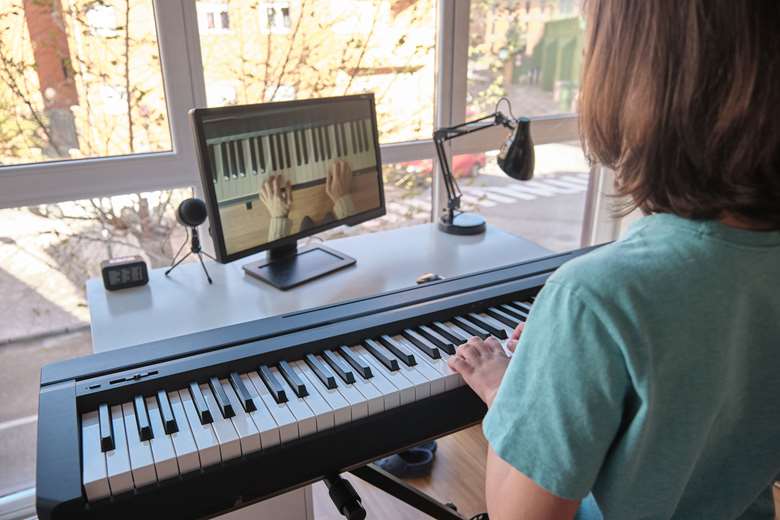There are no short cuts to learning to play the piano properly
Charivari
Friday, March 8, 2024
Charivari laments the idea, seemingly prevalent among a plethora of online tutors touting for your business, that you can play the piano in just a few easy steps

In 1962 the great writer JB Priestley published a volume of autobiography entitled Margin Released – ‘a writer’s reminiscences and reflections’. The last part of the book is called ‘I Had The Time’. One reason for this, he explains, is because ‘during the past 30 years or so, hundreds of people have told me that they could write a good novel, play, book of essays, if only they had the time. Well, I had the time.’
I was thinking about this the other day when idly examining various piano-related websites. There are an awful lot of people offering online piano lessons. And an awful lot of these are American. One thing almost all of them have in common is their belief that what the potential customer wants first and foremost is to spend as little time as possible learning to do the very thing they sign up to do: to play the piano. The message is ‘this is something you can do easily, with the minimum of effort and time.’
With few exceptions, it takes a huge amount of time to learn how to play the piano properly, let alone become a competent pianist, let alone a concert pianist
One personable online teacher offers dozens of videos including ‘Five tips for learning piano faster’, ‘How to learn a piece quickly’, ‘Three tips on learning and mastering piano scales fast’, ‘How to improve your piano sight-reading fast’, ‘Learn four easy chords to quickly play thousands of songs’, ‘How to practise piano to get results fast’, and ‘How adults can learn piano quickly’. He waves his arms around a lot, but not as much as another youngish pedagogue who positively yells his enthusiastic pitch at the camera with jabbing fingers and violent gesticulation. ‘I’ve been a concert pianist for nine years [cut to said pianist bashing out some pop song chords in front of an audience] and for the past seven years I have taught piano to over 200,000 people in my different classes and workshops!’ How To Play Piano In 21 Days And Reach A Pro Level Fast – ‘easier, faster and more fun than all other methods … learning piano doesn’t have to take years. With this new method you can start playing songs within days. So sign up now for my free masterclass and … etc etc’.
It’s all very different from my first piano lessons under the watchful, child-unfriendly gaze of the elderly spinster whom my parents misguidedly thought would hone my innate pianistic ability. One can’t enjoy piano lessons as a four-year-old in a house reeking of cat pee and camphor, and the Associated Board schedule of scales, arpeggios and set exam pieces held little appeal.
With few exceptions, it takes a huge amount of time to learn how to play the piano properly, let alone become a competent pianist, let alone a concert pianist. It takes great pains and great patience. Staying last year with a family of musicians (the mother a piano teacher, and two children and one granddaughter all concert pianists) brought that home to me forcibly. I was made acutely aware of the time each of them dedicated to their art every day. To play at the highest level, it is impossible to do anything less – time to absorb a score, to make adjustments, to memorise, to play it until the notes are forever embedded in the fingers. As a friend of mine was fond of saying: ‘The amateur practises until he gets it right. The professional practises until he can’t get it wrong.’
To become anything like proficient, you have to start young and spend every day practising – not a rushed half hour a week just before the next lesson. The same applies to any creative endeavour. You have to put in the time. There are no short cuts. Both mental and physical muscles demand constant exercise. If you want to be a concert pianist, it is best to get the Chopin Studies under your belt before you’re a teenager. People who don’t touch a keyboard until their 60s can never hope to play fluently. Chords, yes, simple pieces, yes, but not Liszt or Rachmaninov. You will never hear of a retired accountant morphing into a concert pianist. The fingers simply won’t do it.
I was talking over lunch a few weeks ago with an acquaintance who had had a very successful career in the City as an investment banker. The conversation got round to the piano (which he plays) and piano music (of which he knew a lot less than he thought he did). ‘Well,’ he told me with a resigned sigh, ‘back in the day I could have been a concert pianist.’ My Priestley quote came into my mind unbidden. ‘No, you couldn’t,’ I said. ‘What do you mean?’ he retorted sharpishly. ‘You could never have been a concert pianist.’ ‘Why?’ he queried. ‘Because,’ I said, ‘you didn’t have the time.’
This article originally appeared in the Spring 2024 issue of International Piano. Never miss an issue – subscribe today














